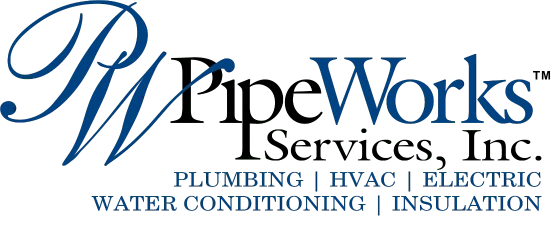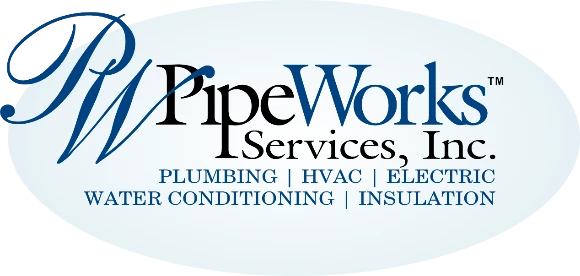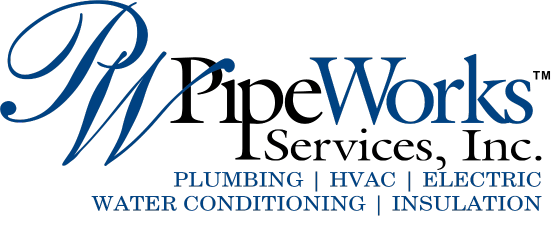Rigid foam insulation has become popular as homes and commercial buildings become more energy-efficient, but questions about fire safety remain. We’ll examine the relationship between rigid foam insulation and fire prevention, allowing you to make informed decisions about your home or commercial building’s safety.
From understanding the role of rigid foam insulation in fire protection to exploring fire testing standards and best practices for installation, we’ll give you the information you need to make an informed decision. Whether you’re a homeowner or building owner, we want to protect you against fires while getting all the benefits of rigid foam insulation. If you decide to insulate your home or building, contact us at Pipe Works Services. We would happily help you decide on your insulation and install it safely.
Understanding the Role of Rigid Foam Insulation in Fire Safety
Understanding the crucial role of rigid foam insulation in fire safety is important. It ensures that everyone living in the home or building is safe and protected from a fire. While rigid foam insulation offers excellent thermal performance and energy efficiency benefits, its fire safety characteristics vary depending on the type of foam and its composition. Closed-cell foam insulation, for example, tends to have higher fire resistance because of its denser structure and ability to restrict oxygen flow. However, Open-cell foam insulation tends to be less fire-resistant but can still provide valuable insulation benefits. Understanding these nuances lets you decide on the best insulation for your home or commercial building.
When properly installed and combined with other fire protection measures, rigid foam insulation can help delay flames spread and reduce the risk of fire-related damage. It’s essential for architects, builders, and homeowners to carefully consider the fire safety implications of rigid foam insulation when choosing materials for construction or home renovation projects. Incorporating fire-resistant insulation solutions and following all local building codes and regulations is vital in ensuring the building is fire-safe.
Types of Rigid Foam Insulation and Their Fire Ratings
Rigid foam insulation has several types, each with a fire rating and performance characteristics. One common type is expanded polystyrene foam (EPS), which has a lower fire rating because of its flammability compared to other types. Extruded polystyrene foam (XPS) has a higher density and moisture resistance, so it has better fire-retardant properties. Polyisocyanurate (polyiso) foam has excellent fire resistance and can withstand high temperatures, so it is often used in roofing materials and applications. Phenolic foam insulation, another option, has exceptional fire performance and is typically used in high-risk areas such as industrial facilities or commercial kitchens. Choosing a rigid foam insulation type for your home and weighing the pros and cons of each can be challenging. We guide our clients through each phase of the decision-making process from start to finish. We will help you choose the best insulation for your home and thoroughly inspect the home during installation.
Code Requirements and Regulations for Fire Safety in Insulation Installation
Code requirements and regulations for fire safety in insulation installation vary depending on building type, location, and occupancy. National and local building codes outline specific requirements for insulation materials, their placement, and fire-resistant requirements to ensure that all insulation complies with fire safety standards. It’s important to follow all regulations when choosing and installing any type of insulation. We take fire safety seriously and follow all regulations when helping homeowners select insulation and when installing it in their homes. Our commitment to your safety and adherence to these regulations should give you peace of mind and confidence in our expertise.
Common Misconceptions About Rigid Foam Insulation and Fire Hazards
We speak to many homeowners and builders who have misconceptions about rigid foam insulation and its fire-retardent properties. Despite its numerous benefits, rigid foam insulation is sometimes associated with misconceptions, such as the idea that all rigid foam insulation types are highly flammable. While certain kinds of foam insulation may have lower fire resistance, other rigid foam insulation, such as polyisocyanurate (polyiso) foam, has excellent fire-retardant properties when properly installed. Another misconception is that rigid foam insulation will melt or collapse in the case of a fire. In reality, rigid foam insulation can withstand high temperatures for a specific amount of time, giving everyone time to get out of the building and for firefighters to respond. For this reason, all rigid foam insulation must be installed by professional technicians with experience in meeting fire code requirements.
Benefits of Rigid Foam Insulation in Homes
Rigid foam insulation offers a multitude of benefits to homeowners, making it a reliable and popular choice for home insulation. It provides excellent thermal insulation, which helps keep the home well-regulated throughout the year with heating and cooling needs. Rigid foam insulation also acts as a barrier against moisture, which helps to prevent mold growth, mildew growth, and water damage. Rigid foam insulation is also lightweight and compact, so it is easy to install in most areas of the home. Another benefit of rigid foam insulation is its ability to keep outdoor pollutants and allergens at bay. Insulation helps enhance the home’s indoor air quality (IAQ) and is an excellent choice for allergy sufferers. Lastly, rigid foam insulation is resistant to pests, which makes it difficult for rodents or insects to burrow their way into the home and damage the structural integrity of the home. Rigid foam insulation is a high-quality investment that can protect your home for years, giving you peace of mind and confidence in your choice.
Advancements in Fire-Resistant Rigid Foam Insulation Technologies and Materials
Significant advancements in fire-resistant rigid foam insulation technologies and materials have transformed the construction industry. These innovations offer homeowners and builders enhanced safety and peace of mind. Engineers and researchers have developed cutting-edge formulations and manufacturing processes that produce rigid foam insulation with superior fire-retardant properties. These advancements include incorporating additives or chemical treatments into the foam matrix to enhance its resistance to ignition and flame spread. Other advancements involve using special coatings or barriers that expand during heat exposure, creating a protective layer that slows fire progression. These technologies have significantly improved the safety of rigid foam insulation, making it a reliable choice for homeowners when installed correctly.
Contact Pipe Works Services Today
As you navigate the complexities of choosing insulation for your home and staying up-to-date on fire safety needs, remember that our team at Pipe Works Services is here to support you at every step. We have been helping homeowners and business owners make these decisions since 2000. Whether you’re considering an insulation upgrade, seeking guidance on fire-resistant materials, or simply looking to enhance the safety of your building, we’re just a phone call away. We have more to offer than just insulation. We also provide plumbing, heating, cooling, electrical, and water conditioning services for Northern and Central New Jersey. We stand behind our work, offering a 100% satisfaction guarantee or your money back! Contact us at Pipe Works Services to discuss your insulation needs and explore solutions tailored to your residence or commercial property.





